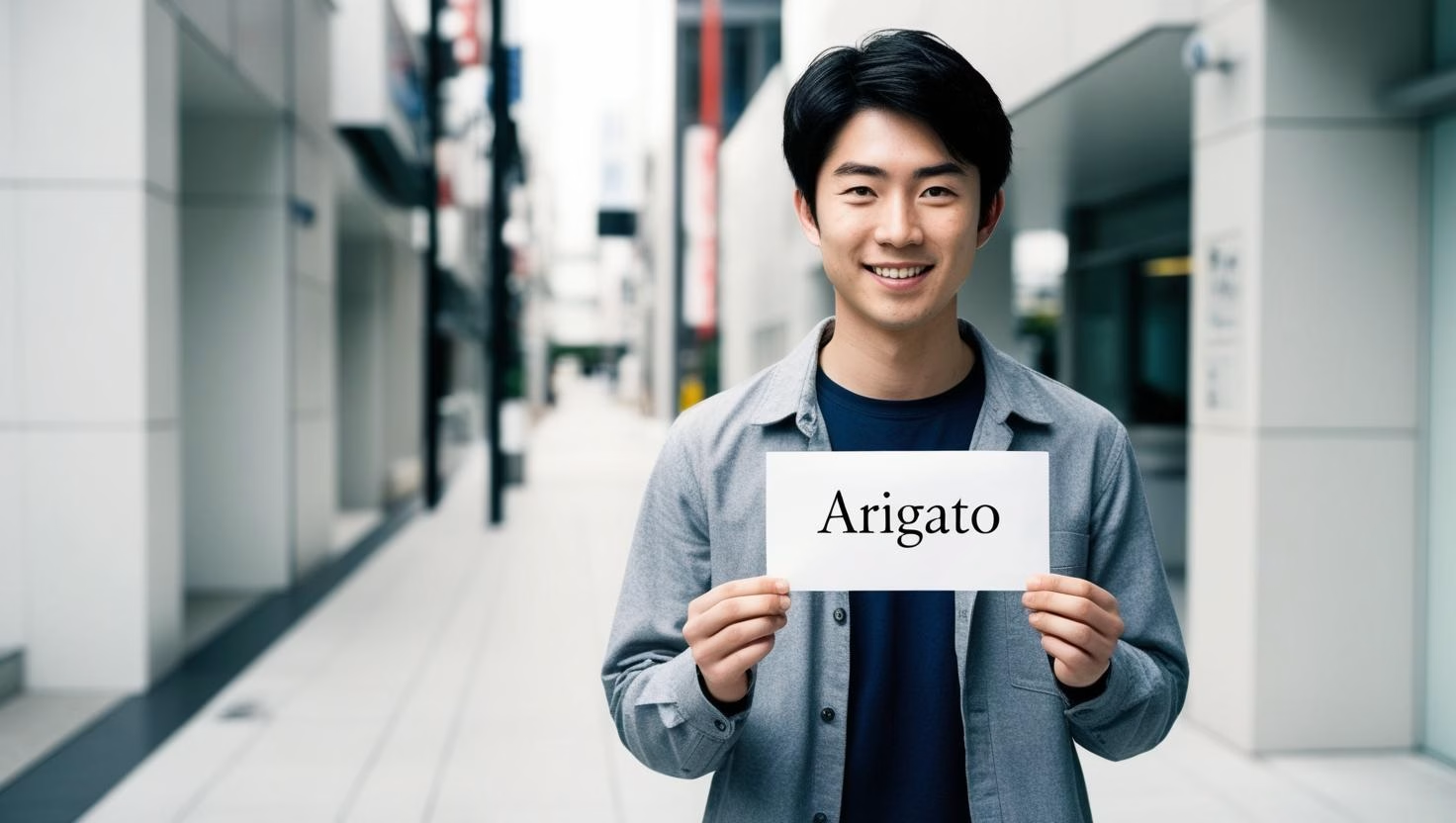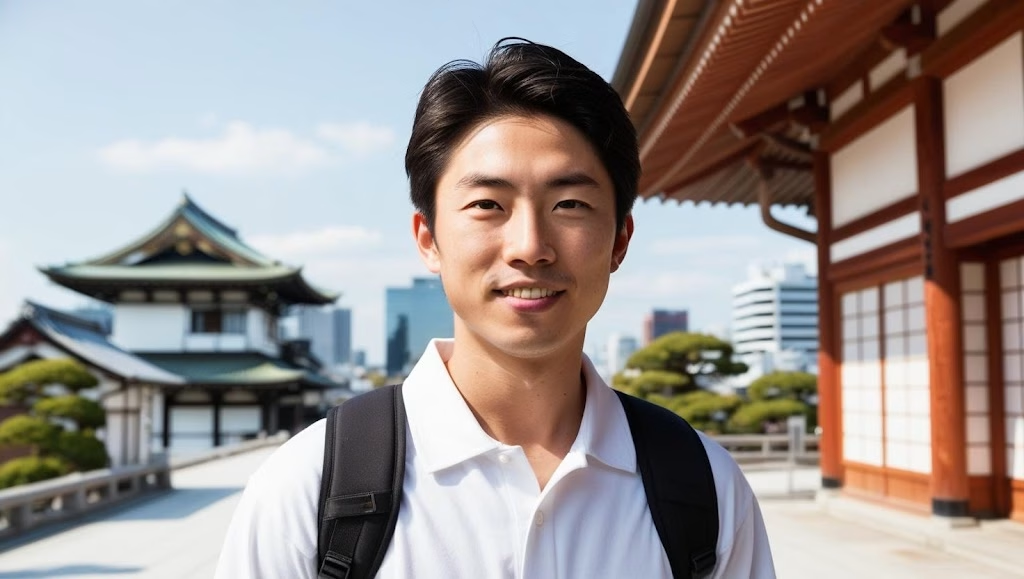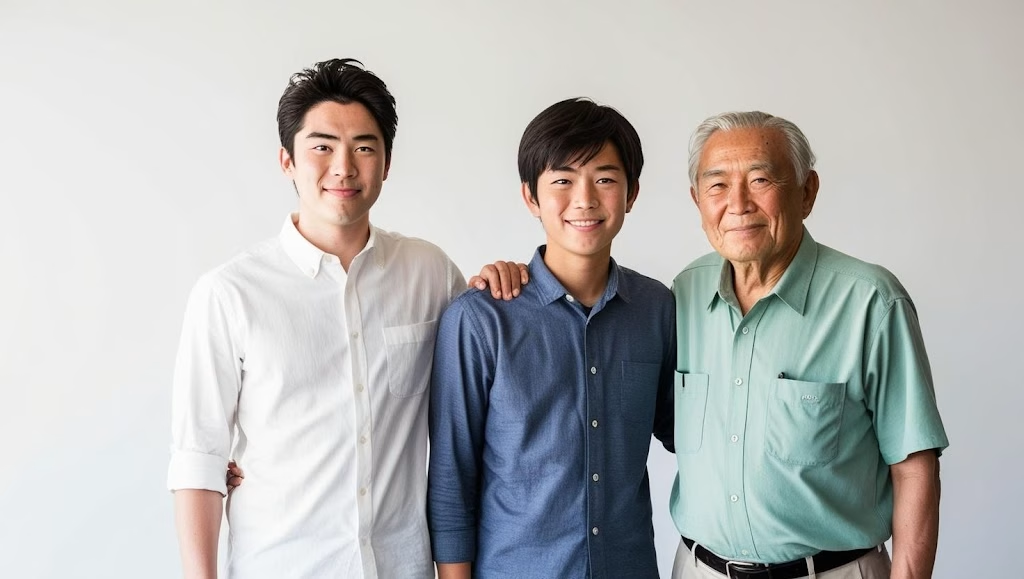In Japanese culture, expressions of gratitude play a very important role. These are not just words, but rather a reflection of the respect and courtesy embedded in Japanese society. Saying “thank you” in Japan is not just about expressing gratitude, but is also a form of deep social interaction. In this article, we will explore how to say thank you in Japanese, variations of the expression, and the cultural context behind the use of this expression.
Key Points
Expressions of gratitude in Japanese reflect the values of politeness and respect.
Variations of expressions of thanks differ in level of formality and context of use.
Understanding the cultural context behind expressions of gratitude helps enrich interpersonal communication.
Japanese popular culture can be an interesting way to learn Japanese expressions of gratitude.
Understanding Thank You Expressions in Japanese
In Japanese, the most common expression for “thank you” is “arigatou” (ありがとう) for everyday use. However, there is also a more formal form called “arigatou gozaimasu” (ありがとうございます). The use of this form depends on the context and the relationship between the speaker and the listener. For example, when you are receiving help from someone older or in a formal situation such as at work, it is advisable to use the more polite form.
Using the correct expression is very important in Japanese culture, where social hierarchy and politeness are highly valued. “Arigatou” can be considered too casual when spoken to someone of higher status, so it is better to use “arigatou gozaimasu.” By understanding this distinction, you can communicate better and show respect to the person you are speaking to.
Not only that, there are also other variations such as “arigatou gozaimashita” (ありがとうございました) which is used after receiving a service, for example in a restaurant. In general, saying thank you in various contexts reflects a humble attitude and recognition of the help given by others. Thus, the use of expressions of gratitude becomes an important part of everyday interactions in Japanese society.

Variations of Thank You Expressions in Japanese
In addition to the basic expressions mentioned above, there are a few other variations that can be used in certain situations. Other examples include the more casual “domo arigatou” (どうもありがとう) which is often used among close friends. Meanwhile, when you want to express your gratitude in a deeper context or when you feel very grateful, you can use “hontou ni arigatou gozaimasu” (本当にありがとうございます), which means “I am truly grateful.”
In addition, in Japanese culture, there are also expressions related to certain situations. For example, “sumimasen” (すみません) can also be interpreted as “sorry”, but in certain contexts it can mean thank you. For example, when someone has apologized or when you want to acknowledge the help given while apologizing for any inconvenience that may have occurred.
Learning and using these variations of expressions can enrich your Japanese language skills and demonstrate a deeper understanding of Japanese culture. Using the right expressions for different situations shows that you care about communication etiquette and social norms.
The Social Context Behind Saying Thank You
Japanese culture has values that highly value gratitude and appreciation in social interactions. Saying thank you sincerely can strengthen relationships between individuals. In Japanese society, even actions that are considered small, such as returning borrowed items or providing small assistance, deserve an expression of gratitude.
Gratitude is not only limited to interactions between individuals, but also applies to relationships between individuals and society. For example, in a business context, saying thank you to colleagues or clients reflects high professionalism and work integrity. This gratitude can be demonstrated by giving greeting cards or even doing good deeds in return for the help given.
In addition, the attitude of gratitude is also reflected in various traditions and activities carried out by Japanese society. Certain moments such as festivals or celebrations are often times to gather and express gratitude to each other, both to those closest to you and to the wider community.
Learning How to Say Thank You Properly
For those of you who want to learn Japanese, mastering how to say thank you is one of the important first steps. It is not only important in terms of language, but also from a cultural perspective. Proper and in-depth use will make your conversations richer and more colorful. You can start by listening to how Japanese people speak, either through movies, songs, or online learning.
Taking a Japanese language class is also an effective way to learn pronunciation and use of thank you expressions in the correct context. If possible, speaking directly with a native speaker is the best way to deepen your understanding of the nuances of the language and culture.
Additionally, practicing consistently in everyday situations such as when interacting with Japanese friends or in a Japanese culture community can be very helpful. Observing how others interact and use expressions of gratitude in different contexts will give you deeper insight.
Expressions of Gratitude in Japanese Popular Culture
Japanese popular culture, such as anime and manga, also explicitly features expressions of gratitude in dialogue between characters. Many series show how gratitude can be expressed warmly and with great feeling. Watching anime and paying attention to the dialogue between characters can be a fun and effective way to learn Japanese, especially in a social context.
In some stories, the expression of gratitude is accompanied by additional gestures or actions, such as bowing or giving something as a sign of gratitude. This shows that in Japanese culture, actions and speech are intertwined, and lead to a strengthening of the meaning behind the expression of gratitude itself.
The use of gratitude in popular culture also reflects the larger themes of cooperation, togetherness, and mutual respect within a community. When watching anime or reading manga, you can see how important gratitude is in building relationships between characters.
Conclusion
In Japanese culture, expressing gratitude is highly valued and has a deeper meaning than simply expressing gratitude. By using the appropriate expressions, we can show respect and strengthen social relationships with others. Understanding the variations and contexts behind expressions of gratitude will enrich our knowledge of the Japanese language and the culture that accompanies it. For anyone interested in understanding Japan more deeply, learning how to properly express gratitude is a valuable first step.
FAQ (Frequently Asked Questions)
What does “arigatou gozaimasu” mean in Japanese?
“Arigatou gozaimasu” means “thank you” in a more polite form. It is used to show respect in formal situations.
When should I use “arigatou” instead of “arigatou gozaimasu”?
“Arigatou” is more appropriate for casual situations or among close friends, while “arigatou gozaimasu” is used in formal contexts or when speaking to older people.
Are there other expressions that can be used to say thank you?
Yes, there are many variations such as “domo arigatou” and “hontou ni arigatou gozaimasu” which show different levels of gratitude.
How do I practice using thank you expressions in Japanese?
You can practice through language classes, talking to Japanese people, or by watching movies and anime while paying attention to the use of these expressions.

















